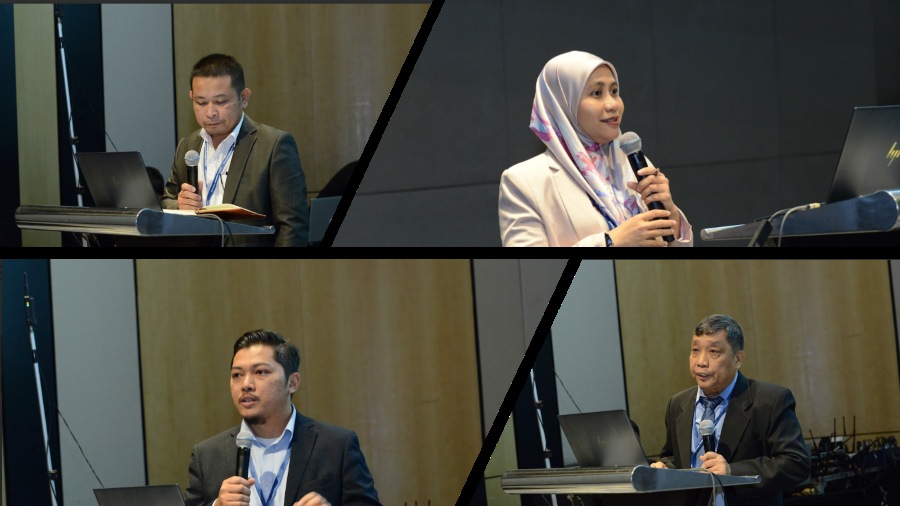
24 Sep Building Regional Capacity for Safer Chemicals Management: Highlights from the 2025 GSC-ARCP Collaborative Workshop in Manila
Between 24 and 26 September 2025, in Manila, the pivotal GSC-ARCP Collaborative Chemical Management Capacity Building Workshop brought together government authorities, industry partners, and foreign experts to help drive chemical safety forward across Asia Pacific. Backed by the Global Silicones Council led by Mr. Karluss Thomas, the Philippines Department of Trade and Industry (DTI), the Chemical Industries Association of the Philippines, and Singapore Chemical Industry Council (SCIC), this intensive forum enhanced regional capacity in chemical evaluation, risk regulation, and regulatory collaboration.
The workshop started with an introductory message from Mr. Karluss Thomas, Executive Director of Global Silicones Council and Ms. Cissie Yeung, Co-chairperson of the ASEAN Regulatory Cooperation Platform (ARCP), discussing the objectives of the workshop.


SPIK President, Engr. Gretchen Enarle, then formally welcomed the participants, emphasizing the importance of collaboration and shared commitment to chemical safety and environmental stewardship in her message, followed by a keynote speech from Mr. Reynaldo Lignes, OIC Director, DTI- Board of Investments Manufacturing Industries Service, highlighting the importance of regional cooperation among ASEAN Member States.


Representatives from 12 Asia- Pacific economies (Australia, Japan, Brunei Darussalam, Cambodia, Indonesia, Laos PDR, Malaysia, Myanmar, Philippines, Singapore, Thailand, and Vietnam) presented national regulations structures that identify areas for harmonization and some systemic differences.



UNEP, on the other hand, strengthened international commitment to the safety of chemicals. At the same time, afternoon exercises provided hands-on training in the use of risk assessment methods, including OECD Toolbox and Ecotox databases with the guidance of Australia, EU, and US experts. Participants in the breakout groups identified cooperative options for dealing with persistent organic pollutants (POPs).


Practical case studies were the order of the day on the second, as participants tackled real-life situations dealing with metal toxicity, endocrine disruptors, and POPs. The cross-sector cooperation enabled industry and academic experts to lead regulators through exposure modeling and risk characterization discussions.






A networking party, where participants mingled to strengthen collaboration between them, and officials from ASEAN states gathered earnestly to discuss ways to synchronize their POPs management strategies. Delegates networked with intent, seeking to bring the chemical industry, academia, and policy closer together, while discreetly logging points at which chemical registry systems and rising ASEAN protocols could find common purpose.






During the last day, ARCP’s strategic planning was presented as a response to ASEAN’s changing regulatory environment. Issues under consideration included AEC/Transparency in the ASEAN Economic Community, trends in regulatory cooperation at APEC, and implications of trade negotiations to the WTO. Emerging priorities were, for instance, EPR schemes, updates to GHS, and chemicals related to plastic pollution. Regulatory news from the EU, USA, China, Korea, and Japan set the tone for breakout into ARCP’s workstream consensus building on risk management and EPR implementation.




Members of the Samahan sa Pilipinas ng mga Industriyang Kimika (SPIK) were joined by representatives from the DTI-BOI, DENR-EMB, DOLE-OSHC, PNP-FEO, and FDA, as well as from Caraga State University, in the event.




The workshop indeed strengthen the foundation of ASEAN in chemical management. By combining scientific quality, regulatory expertise, and hands-on problem-solving, it created feasible ways to establish harmonized standards for protecting human health and the environment. Partnerships with government, industry, and international partners will continue to be essential in the face of such complex chemical safety challenges as the region undergoes growth and transition.



The event was co-organized by Philippines DTI, Global Silicones Council (GSC), ASEAN Regulatory Cooperation Platform (ARCP) and Chemical Industries Association of the Philippines, Singapore Chemical Industry Council (SCIC).

